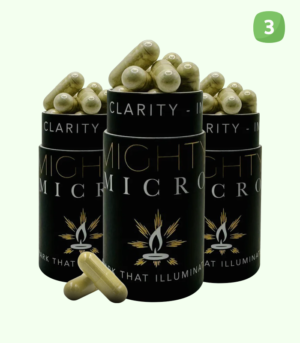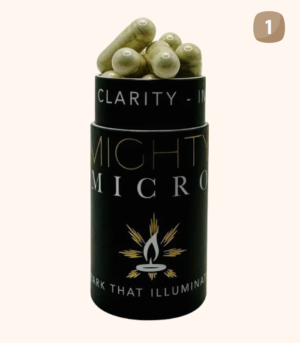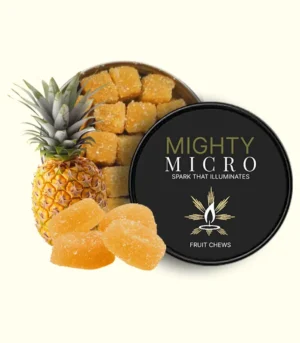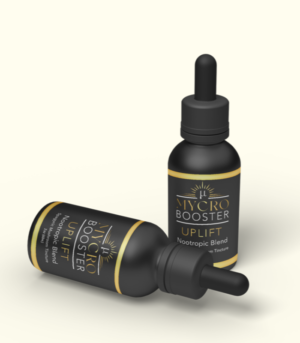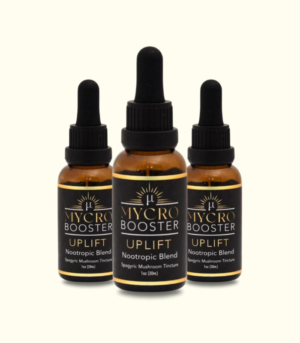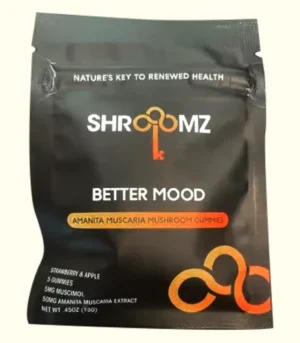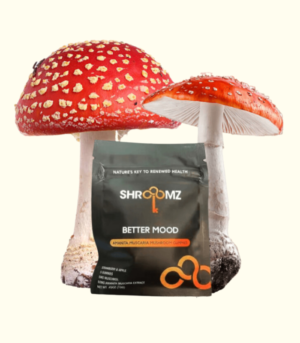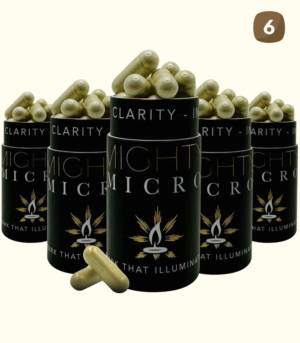Are you curious about how microdosing psychedelics might enhance your lucid dreaming experiences? This article explores the intriguing connection between microdosing and lucid dreaming, two fascinating phenomena that could revolutionize our understanding of consciousness.
In the realm of consciousness exploration, the intriguing relationship between microdosing and lucid dreaming has been garnering significant attention. Lucid dreaming, a state where one becomes aware that they are dreaming and can exert some control over the dream’s narrative, has long fascinated individuals seeking to unlock the mysteries of the mind.
Meanwhile, microdosing, a practice involving the consumption of minute amounts of substances like psychedelics, has gained popularity for its potential cognitive and creative benefits.
What is the Connection Between Microdosing and Lucid Dreaming?
Although research on the connection between microdosing and lucid dreaming is still in its infancy, anecdotal reports and personal experiences have sparked curiosity. Microdosing involves consuming sub-perceptual doses of substances like LSD or psilocybin mushrooms. While it’s not the primary intention, microdosers have occasionally reported heightened dream awareness and an increase in the frequency of lucid dreams.
How Might Microdosing Affect the Neurological Landscape of Dreams?
To understand the potential correlation between microdosing and lucid dreaming, we must explore the neurological landscape. Microdosing substances can influence serotonin receptors and the default mode network (DMN), a brain network associated with self-referential thoughts and mind-wandering. This interaction could impact dream vividness and introspective capacities during dreams.
How Does Microdosing Enhance Awareness Within Dreams?
One of the most alluring aspects of lucid dreaming is the heightened sense of awareness one experiences within the dream state. Transitioning this concept to microdosing, some individuals speculate that the increased sensory perception and mindfulness fostered by microdosing may extend into dreams. However, it’s important to note that scientific investigations are still necessary to ascertain the extent of this influence.
How Does Personal Variability Influence the Effects of Microdosing on Lucid Dreaming?
An essential facet of both microdosing and lucid dreaming is the wide variability in individual experiences. Just as microdosing can affect individuals differently in their waking lives, its impact on dreams may also be highly subjective. Factors such as dosage, substance type, and an individual’s neurochemistry could all contribute to the variability observed.
What Are the Challenges and Ethical Considerations of Microdosing for Lucid Dreaming?
Microdosing, the practice of consuming sub-threshold amounts of psychedelics such as LSD or psilocybin mushrooms, has garnered attention for its potential cognitive and creative benefits. However, when it comes to enhancing lucid dreaming, several challenges and ethical considerations arise:
Challenges
- Lack of Robust Research
The scientific study of microdosing, particularly in relation to lucid dreaming, is still in its early stages. There is limited empirical evidence supporting the effects of microdosing on dream experiences. Most current knowledge is derived from anecdotal reports rather than controlled scientific studies.
- Variability in Effects
Microdosing effects can vary significantly between individuals. Factors such as dosage, substance type, individual neurochemistry, and psychological state can influence outcomes. This variability makes it difficult to predict or standardize the impact on lucid dreaming.
- Regulatory and Legal Issues
The legal status of psychedelics varies widely across different regions. In many places, substances used for microdosing remain illegal, which complicates research and limits access for those interested in exploring their effects on lucid dreaming.
- Potential Adverse Effects
While microdosing is generally considered to have fewer side effects compared to full-dose psychedelic experiences, it is not without risks. Possible side effects include anxiety, impaired cognitive function, or other psychological disturbances. These could potentially interfere with the quality of lucid dreaming experiences.
Ethical Considerations
- Informed Consent and Safety
When engaging in microdosing, individuals should be fully informed of potential risks and benefits. Ethical concerns arise if users are not aware of the potential psychological impacts or if they are experimenting without proper guidance or understanding.
- Access and Equity
The cost and legality of psychedelics can create barriers to access. This raises ethical questions about who has the opportunity to explore microdosing and the potential for creating disparities based on legal or financial constraints.
- Long-term Impact
The long-term effects of microdosing are not well-understood. Ethical considerations include ensuring that individuals are not unknowingly exposing themselves to unknown long-term risks or developing dependencies.
- Cultural Sensitivity
The use of psychedelics, including for purposes like lucid dreaming, can intersect with cultural and spiritual practices. It is important to approach these substances with respect for their traditional uses and meanings, ensuring that modern practices do not inadvertently disrespect or misuse these elements.
Buy Magic Mushroom Online
How Do Intention and Mindset Affect Lucid Dreaming During Microdosing?
In the pursuit of lucid dreaming through microdosing, intention and mindset play pivotal roles. Setting a clear intention to become lucid within dreams, coupled with the altered cognitive state induced by microdosing, could create a fertile ground for lucidity to occur. Practicing mindfulness and meditation, both of which are commonly associated with microdosing routines, might further amplify these effects.
Can Lucid Dreaming Skills Be Practiced During Microdosing?
An interesting avenue for exploration is whether individuals can actively practice and refine their lucid dreaming skills during microdosing experiences. The heightened state of awareness and reduced inhibitions associated with microdosing might offer a unique opportunity to experiment with different techniques for inducing and sustaining lucidity within dreams.
What New Opportunities for Dream Control Might Microdosing Offer?
Lucid dreaming often comes hand in hand with the desire to control the dream environment. The fusion of microdosing and lucid dreaming could potentially open up new avenues for dream control experiments. Individuals might be more inclined to explore the boundaries of the dream realm, manipulate dream elements, or engage in creative problem-solving scenarios.
How Could Microdosing Open New Avenues for Dream Control Experiments?
The convergence of microdosing and lucid dreaming presents a fascinating yet largely unexplored territory within the realm of consciousness exploration. While anecdotal reports suggest a potential correlation between microdosing and heightened dream awareness, scientific research is needed to provide more conclusive insights into this connection. As with any practice involving altered states of consciousness, responsible use, ethical considerations, and individual variability are crucial factors to bear in mind.
Whether microdosing can truly facilitate lucid dreaming or simply enhance dream-related experiences remains a tantalizing question. As our understanding of the brain’s intricacies and the effects of microdosing continues to evolve, we may uncover more about the potential intersections between these two phenomena. Until then, those intrigued by the possibility of enhancing their dream journeys through microdosing must approach this uncharted territory with a balance of curiosity and caution.
Conclusion
In conclusion, the relationship between microdosing and lucid dreaming sparks curiosity and offers a new dimension to explore the human consciousness. While the scientific understanding of this connection is still developing, the anecdotal reports and potential neurological interactions leave room for exciting possibilities. As individuals tread the path of exploring altered states of both waking and dreaming consciousness, it’s essential to approach this journey with an open mind, a commitment to responsible exploration, and an appreciation for the mysteries that await within our own minds.
How to Wake Up From a Lucid Dream?
To wake up from a lucid dream, try these methods:
Focus on Waking Up: Intentionally tell yourself to wake up or use mental commands.
Change the Dream: Alter the dream scenario, like spinning or jumping.
Stimulate Physical Sensations: Pinch your nose or focus on dream sensations.
Visualize Waking: Imagine actions associated with waking up.
Move Physically: Gently move your body or open your eyes.
These techniques can help transition you from the dream state to waking consciousness.
Is lucid dreaming real?
Yes, lucid dreaming is real. It is a state in which a person becomes aware that they are dreaming and can often control the dream’s content. This phenomenon has been documented and studied scientifically. Research shows that lucid dreaming occurs during REM (rapid eye movement) sleep, a phase where the brain is highly active. Techniques such as reality checks and dream journaling can increase the likelihood of experiencing lucid dreams.
Are lucid dreams good or bad for you?
Lucid dreaming can offer benefits such as increased self-awareness, creative exploration, and improved management of nightmares. However, it may also pose risks like disrupting sleep, causing sleep paralysis, or occasionally blurring the line between dreams and reality.
Can you control your dreams?
Yes, in lucid dreaming, you can often control your dreams once you realize you’re dreaming. This control can include altering the dream environment, changing the storyline, or even flying. However, the extent of control can vary from person to person and may depend on experience and technique.
How Microdosing Psilocybin Influences Your Dream World?
Microdosing psilocybin may enhance dream vividness and awareness, potentially increasing the frequency and clarity of dreams, and possibly leading to more lucid dreaming. This effect is attributed to psilocybin’s influence on serotonin receptors and brain networks involved in perception.
What is the impact of psilocybin on sleep quality and patterns?
Psilocybin may improve sleep quality by reducing anxiety and promoting relaxation, potentially leading to better sleep patterns. However, individual responses vary, and more research is needed to fully understand its effects on sleep.


